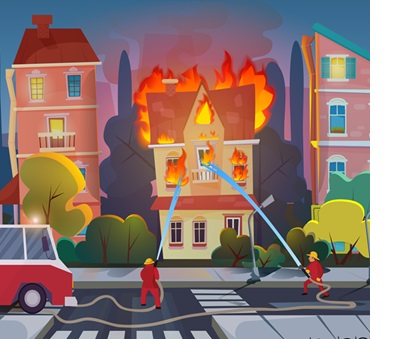Effective Conflict De-escalation: Strategies and Techniques
 Conflict is an inevitable part of human interactions, but its resolution doesn't always have to be contentious or destructive. The art of de-escalating conflicts is a valuable skill in both personal and professional realms. This in-depth guide offers insights and strategies for effectively managing and resolving conflicts, fostering a more harmonious and understanding environment.
Conflict is an inevitable part of human interactions, but its resolution doesn't always have to be contentious or destructive. The art of de-escalating conflicts is a valuable skill in both personal and professional realms. This in-depth guide offers insights and strategies for effectively managing and resolving conflicts, fostering a more harmonious and understanding environment.
Understanding Conflict
Before diving into de-escalation techniques, it's essential to understand what conflict is and why it occurs. Conflicts arise from differences in opinions, beliefs, values, or goals. These differences can lead to misunderstandings, frustration, or perceived threats. Recognizing the root causes of conflicts is the first step in resolving them.
Principles of De-escalation
-
Active Listening: Engage in active listening, which involves fully concentrating, understanding, responding, and then remembering what is being said. This demonstrates respect and understanding.
-
Empathy: Try to understand the other person's perspective. Empathy can diffuse anger and tension, as it shows you care about their feelings and viewpoints.
-
Stay Calm: Maintain a calm demeanor. Your calmness can help stabilize the situation and encourage a more rational discussion.
-
Use Non-Threatening Body Language: Adopt a non-confrontational stance. Avoid crossing your arms, frowning, or making aggressive gestures.
-
Speak Softly: Lowering your voice can encourage the other person to listen more closely and often leads them to lower their voice as well.
-
Choose Your Words Carefully: Avoid accusatory language. Use "I" statements to express your feelings without blaming the other person.
Strategies for De-escalating Conflicts
-
Identify Common Ground: Start the conversation by acknowledging points of agreement. This sets a positive tone and shows willingness for compromise.
-
Avoid Escalation Triggers: Recognize and avoid words or actions that might escalate the conflict. This includes sarcasm, dismissive comments, or interrupting the other person.
-
Take a Time-Out if Needed: If emotions run high, suggest a break. A short pause can allow everyone to cool down and approach the issue more calmly.
-
Focus on the Issue, Not the Person: Keep the discussion focused on the specific issue rather than personal attributes or past issues.
-
Acknowledge the Other Person's Emotions: Recognize and validate the other person’s feelings, even if you don't agree with their viewpoint.
-
Seek Solutions Together: Shift the discussion from who is right to finding a mutually acceptable solution.
Navigating Challenging Conversations
-
Dealing with Anger: When faced with anger, respond with calmness and empathy. Acknowledge their feelings and ask clarifying questions.
-
Handling Defensive Behavior: If someone becomes defensive, reassure them that the goal is not to blame but to resolve the issue constructively.
-
Overcoming Communication Barriers: Be aware of and try to overcome any cultural, linguistic, or personal communication barriers.
Advanced Techniques in Conflict Resolution
-
Mediation: In complex conflicts, a neutral third party can help facilitate a resolution.
-
Collaborative Problem Solving: Engage in a process where both parties contribute to finding a solution. This creates buy-in and increases the chances of a lasting resolution.
-
Reframing: Change the way the conflict is perceived. Reframing can turn a seemingly intractable problem into an opportunity for growth and learning.
Long-Term Strategies for Conflict Prevention
-
Build Strong Relationships: Invest time in building trust and understanding with those around you. Strong relationships are less likely to devolve into serious conflicts.
-
Develop Self-Awareness: Be aware of your triggers and work on managing your emotional responses.
-
Foster an Environment of Open Communication: Encourage open and honest communication in your personal and professional life.
Conclusion
De-escalating conflicts is a skill that requires patience, empathy, and effective communication. By understanding the dynamics of conflict and applying these strategies, you can transform potentially destructive situations into opportunities for growth and understanding. Remember, the goal is not to win an argument, but to reach a resolution that respects the needs and perspectives of all parties involved.



























